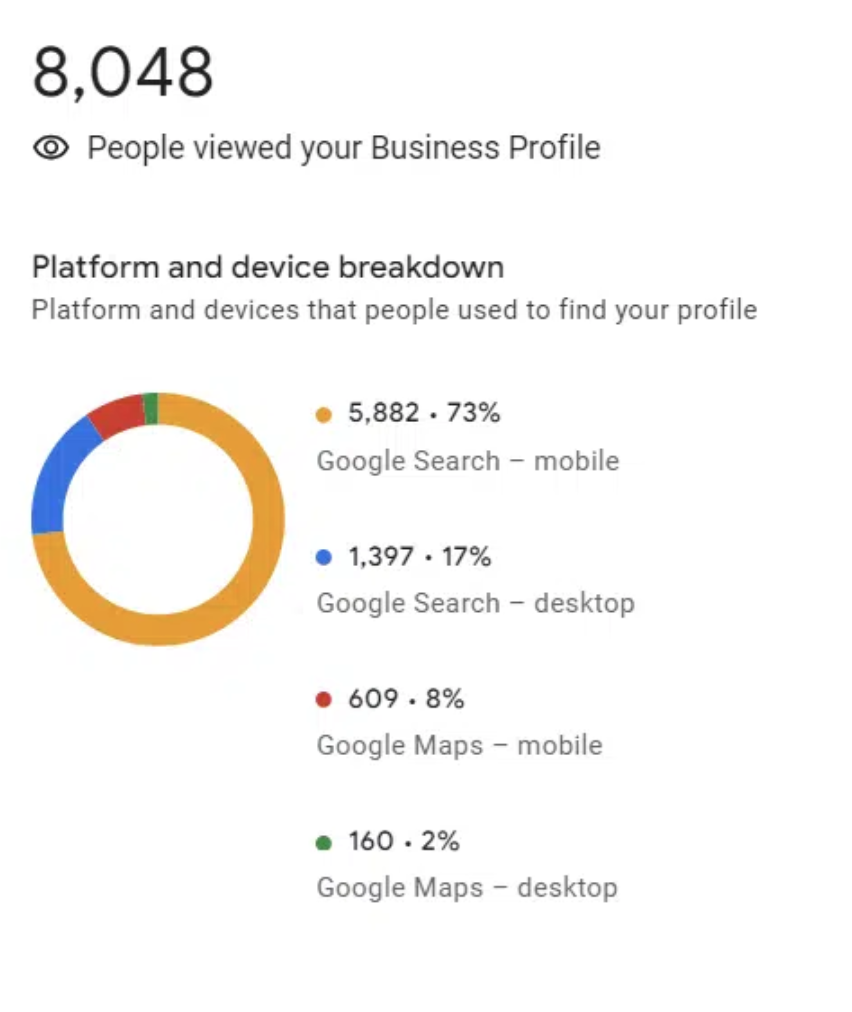Local Memo: Google, Microsoft Unveil AI Tools for Retailers

Local Memo: Google, Microsoft Unveil AI Tools for Retailers
In this week’s update, learn about Google’s and Microsoft’s new AI tools for retailers; TikTok’s growing popularity for search; Google’s stricter email rules; a guide to GBP performance metrics; scam calls from “Google” on the rise; and the launch of the ChatGPT Store.
Google, Microsoft Unveil AI Tools for Retailers
Google’s Cloud division has announced the release of new generative AI tools for retailers, including a chatbot tool for websites and apps, designed to offer recommendations for shoppers. The news follows similar announcements from Amazon. The tools will also help to improve customer service and product catalogs.
Similarly, Microsoft has launched new AI tools for retailers in its Azure cloud platform. Termed Cloud for Retailers, the suite of services helps retailers build shopping experiences online that mimic the experience of working with an in-store personal shopper. Consumers will interact with generative AI to describe their needs, rather than navigating through menus and search bars. Cloud for Retail also includes tools for improving staff communications. A study commissioned by Microsoft showed that retailers gain $3.45 for every $1 invested in AI.
Both Google’s and Microsoft’s announcements were timed to occur just before the National Retail Federation conference in New York City this week.
Study Shows TikTok Gaining in Popularity for Search
A new study from Adobe shows that TikTok is gaining in popularity as a search engine among younger users. The study finds that 40% of all consumers use TikTok for search, that number climbing to 49% for millennials and 64% for Gen Z. Popular topics include recipes, music, DIY, and fashion. Some 10% of users, according to the study, say they prefer TikTok to Google for search (this is compared to a Google study from 2022 which found that 40% of Gen Z users prefer Instagram or TikTok over Google when searching for a place to have lunch).
As for businesses, more than half say they are using TikTok to promote themselves, with an average frequency of 9 posts per month. Some 25% of small businesses say they are working with influencers on TikTok, and 53% of businesses say they will increase their TikTok marketing budgets.
Google’s Stricter Email Rules Start in February
Stricter rules for bulk emails, announced by Google last October, will start to go into effect in February. The rules apply to any sender with a volume of more than 5,000 emails per day. Senders must validate themselves using common protocols, and must provide recipients with a one-click unsubscribe option. They must also stay under a set threshold for being marked as spam, or risk getting blacklisted. In order to avoid getting their emails banned for Gmail users, senders must adhere to these guidelines, and must ensure their emails are properly segmented and personalized so they will be seen as relevant to recipients.
A Guide to GBP Performance Metrics
Sherry Bonelli has a new guide to Google Business Profile (GBP) performance metrics on Search Engine Land. These are the metrics provided to every business with a claimed GBP profile, tracking traffic to those profiles as well as actions taken by consumers and other data. Aside from reminding us how to access the metrics and what they cover, Bonelli’s piece is a helpful summary of the new terminology Google is now using, which differs in various ways from how the Insights metrics were positioned in the old Google My Business (GMB) dashboard.
For instance, actions — calls, directions requests, website clicks, etc. — are now called “interactions,” and are showcased more prominently than before, with a wider range of options that, depending on the business, may include booked appointments, messages, menu views, and food orders.
What used to be called searches and views are now grouped under views, with distinctions between desktop and mobile and between Google Search and Google Maps. There’s no more distinction between Discovery searches (general keywords) and Direct or Branded searches (business and brand names). The method of counting has also changed, with items like views and directions requests counting each user only once per day, even if they look up the same business more than once or on more than one device.
Keywords used to find your business is the other major feature, carried over from the GMB dashboard.

The new views chart, courtesy Search Engine Land
Scam Calls from “Google” on the Rise (Again)
Erin Jones from Sterling Sky warns businesses to be on the lookout for spam calls from people pretending to represent Google. This has been a perennial issue, but is especially common nowadays, with $40 million lost to various phone scams (not just Google related) in 2022 alone. Google makes it clear that they will never call a business out of the blue just to sell them a service, though they may call for other reasons:
“Google does not make unsolicited sales calls from an automated system. However, we may place automated phone calls to your business for non-sales tasks such as confirming your business details for Google Maps, making reservations, or scheduling appointments on behalf of Google users. In some cases, these calls can be from a manual operator.”
Anyone who claims to be working with or for Google, and who asks for payment to ensure high local rankings or to prevent some threatened outcome like your listing being removed, is likely a scammer. These calls can be reported to Google and to the FTC.
OpenAI Launches ChatGPT Store
As covered by Mike Blumenthal and several other sources, OpenAI has launched the ChatGPT Store, after delays late last year related to the Sam Altman debacle. The ChatGPT Store offers prebuilt custom versions of ChatGPT designed to serve specific needs.
Featured examples include AllTrails, for hikers, bicyclists, and runners; Consensus, for science-oriented academic research; Code Tutor, for coding tutorials from Khan Academy; and Canva, for graphic design integrated with the popular graphics platform. Anyone can use OpenAI’s new tools to create their own custom chatbot, called a GPT, and OpenAI reports that 3 million of these have been created in the last two months. GPTs created by users can be submitted for approval to be included in the ChatGPT Store.




